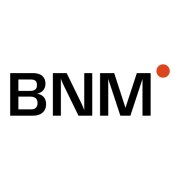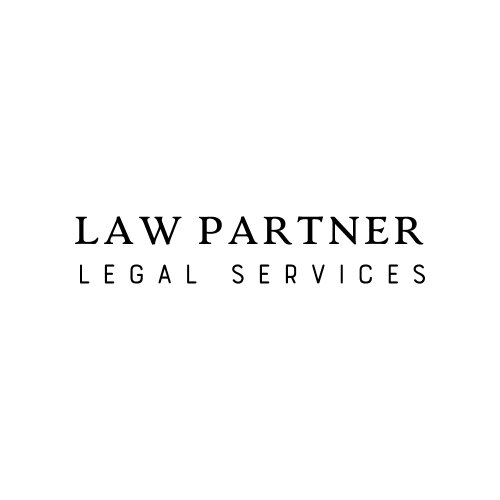Best Public-Private Partnerships (PPP) Lawyers in Vilnius
Share your needs with us, get contacted by law firms.
Free. Takes 2 min.
List of the best lawyers in Vilnius, Republic of Lithuania
About Public-Private Partnerships (PPP) Law in Vilnius, Republic of Lithuania
Public-Private Partnerships, commonly referred to as PPPs, are cooperative arrangements between public authorities and private sector entities aimed at financing, developing, and operating projects or providing services that serve the public interest. In Vilnius and throughout the Republic of Lithuania, PPPs have become a key tool for infrastructure development, helping public bodies benefit from private sector investment, innovation, and expertise. PPPs are typically used in sectors such as transportation, energy, healthcare, education, and utilities. The legal framework governing PPPs in Lithuania is intended to ensure transparency, fair competition, and the protection of both public and private interests.
Why You May Need a Lawyer
Engaging in a Public-Private Partnership often involves complex legal documentation, regulatory compliance, and risk allocation between the parties. Here are some common situations where legal assistance in PPPs is vital:
- Drafting and negotiating PPP project agreements and contracts
- Participating in public procurement procedures
- Ensuring compliance with Lithuanian PPP laws and regulations
- Dispute resolution between public authorities and private partners
- Assessing and managing project risks
- Structuring project financing to ensure legal effectiveness
- Advising on land use, property rights, and environmental regulations
- Protecting intellectual property and proprietary technology used in PPP projects
- Ensuring adherence to European Union directives relevant to PPPs
- Assisting foreign investors with local legal requirements and procedures
Local Laws Overview
The legal landscape for PPPs in Vilnius and the Republic of Lithuania is defined by several key statutes and regulations:
- The Law on Concessions, which establishes the framework for public authorities to grant concessions to private entities
- The Law on Investment, providing guarantees for the rights of investors
- The Law on Public Procurement, ensuring transparent and competitive procedures for selecting project partners
- Relevant civil law, contract law, and administrative procedures that govern relations between parties and public bodies
- Compliance with European Union regulations and directives where applicable, particularly in cross-border projects or those using EU funds
In Vilnius, local authorities align with national legislation but may also implement specific municipal guidelines for PPP projects. Contracts must clearly assign responsibilities, timelines, and risk-sharing mechanisms, and are subject to review by regulatory bodies to confirm legality and viability.
Frequently Asked Questions
What is a Public-Private Partnership (PPP) in Lithuania?
A PPP is a long-term collaboration between a public sector authority and a private company for the purpose of providing a public service or project, where the private partner typically takes on significant risks and management responsibility.
What kind of projects are typically developed using PPPs in Vilnius?
PPPs are commonly used for infrastructure projects such as roads, bridges, public transport, schools, hospitals, public utilities, and energy systems in Vilnius.
Is there a specific law that regulates PPPs in Lithuania?
Yes, PPPs are regulated mainly by the Law on Concessions, the Law on Public Procurement, and the Law on Investment, along with applicable EU regulations.
How are partners selected for a PPP project?
Private partners are chosen through a competitive tendering process that follows the principles of transparency, equality, and non-discrimination as required by the Law on Public Procurement.
What risks do private partners typically assume in Lithuanian PPPs?
Private partners often bear construction, financial, operational, and demand risks, which are specified during the contract negotiation phase.
Can foreign companies participate in PPPs in Vilnius?
Yes, foreign entities may participate in PPP projects, provided they comply with Lithuanian laws and meet the qualification criteria set out in the tender documents.
How are disputes resolved in PPP agreements?
PPP contracts typically include dispute resolution mechanisms, which may involve negotiation, mediation, arbitration, or litigation in Lithuanian courts.
Are PPP contracts publicly available for inspection?
Generally, PPP contract summaries and certain non-confidential information are accessible following principles of transparency, but sensitive business information is protected.
Is government support available for PPP projects?
The government may offer support in specific cases, such as guarantees or subsidies, particularly for projects serving vital public interests or those co-financed by EU funds.
Why is legal due diligence important in PPP projects?
Thorough legal due diligence helps identify potential legal, financial, and operational risks, ensuring that the project structure is compliant and any issues are addressed before contracts are signed.
Additional Resources
Individuals or companies seeking further guidance or support regarding PPPs in Vilnius, Republic of Lithuania, may find the following resources helpful:
- Ministry of Finance of the Republic of Lithuania: PPP regulatory authority and policy guidance
- Central Project Management Agency (CPMA): Provides information on PPP project development and monitoring
- Public Procurement Office (VPT): Issues guidelines and rules for public procurement procedures
- Vilnius City Municipality: Offers information on local PPP projects and tender opportunities
- Lithuanian Bar Association: Directory of qualified lawyers and legal experts in PPP law
Next Steps
If you are considering participating in or initiating a PPP project in Vilnius, it is highly recommended to consult a legal professional specialized in this field. You should:
- Gather relevant documentation about your proposed project or opportunity
- Research and select a lawyer or legal firm with expertise in Lithuanian PPP law
- Schedule a consultation to discuss your situation, risks, and objectives
- Work with your lawyer to ensure all contracts, tenders, and compliance requirements are met
- Maintain communication with relevant public authorities and regulatory agencies throughout the PPP process
By securing qualified legal advice early, you can confidently navigate complex PPP procedures, safeguard your interests, and contribute to successful public-private initiatives in Vilnius.
Lawzana helps you find the best lawyers and law firms in Vilnius through a curated and pre-screened list of qualified legal professionals. Our platform offers rankings and detailed profiles of attorneys and law firms, allowing you to compare based on practice areas, including Public-Private Partnerships (PPP), experience, and client feedback.
Each profile includes a description of the firm's areas of practice, client reviews, team members and partners, year of establishment, spoken languages, office locations, contact information, social media presence, and any published articles or resources. Most firms on our platform speak English and are experienced in both local and international legal matters.
Get a quote from top-rated law firms in Vilnius, Republic of Lithuania — quickly, securely, and without unnecessary hassle.
Disclaimer:
The information provided on this page is for general informational purposes only and does not constitute legal advice. While we strive to ensure the accuracy and relevance of the content, legal information may change over time, and interpretations of the law can vary. You should always consult with a qualified legal professional for advice specific to your situation.
We disclaim all liability for actions taken or not taken based on the content of this page. If you believe any information is incorrect or outdated, please contact us, and we will review and update it where appropriate.














